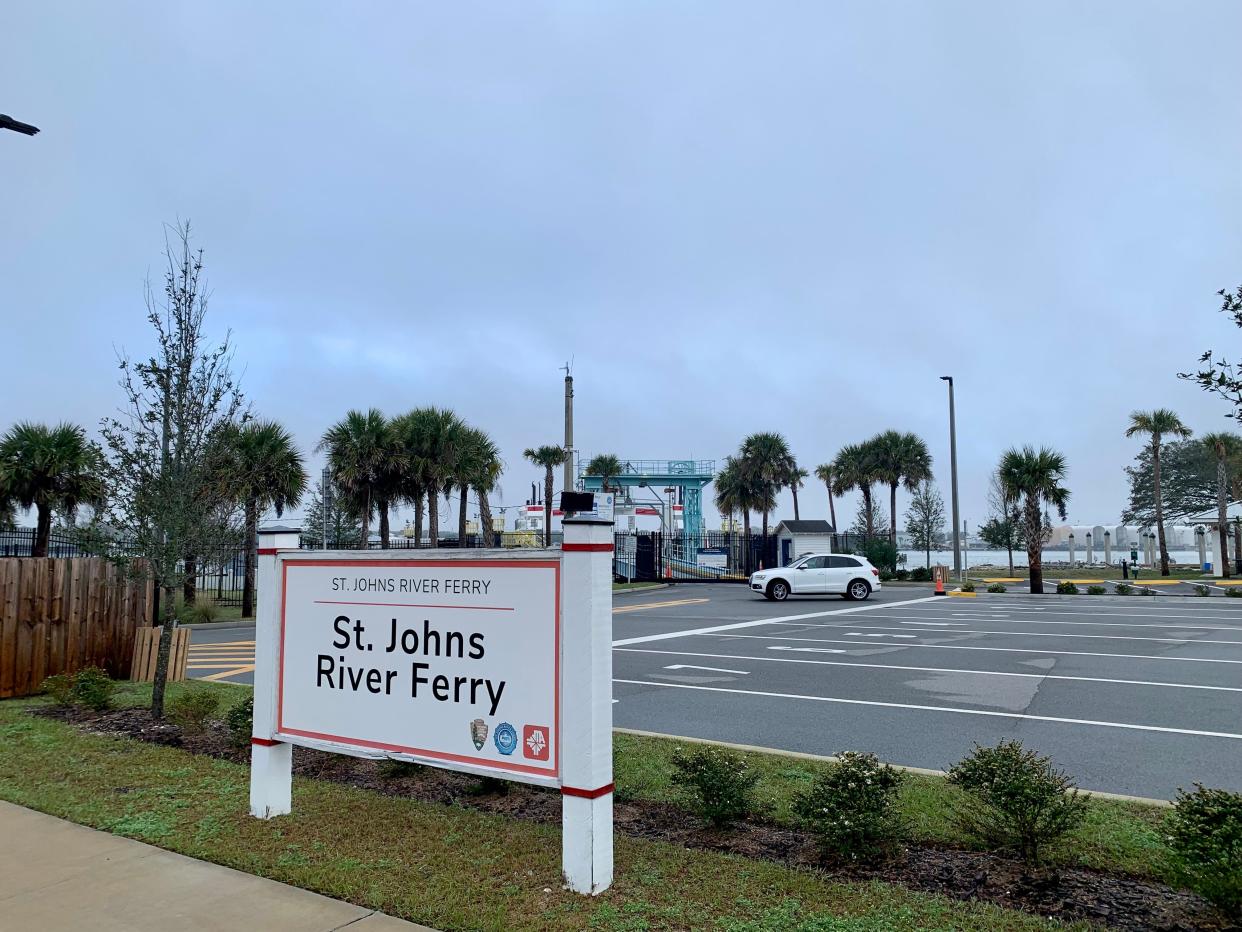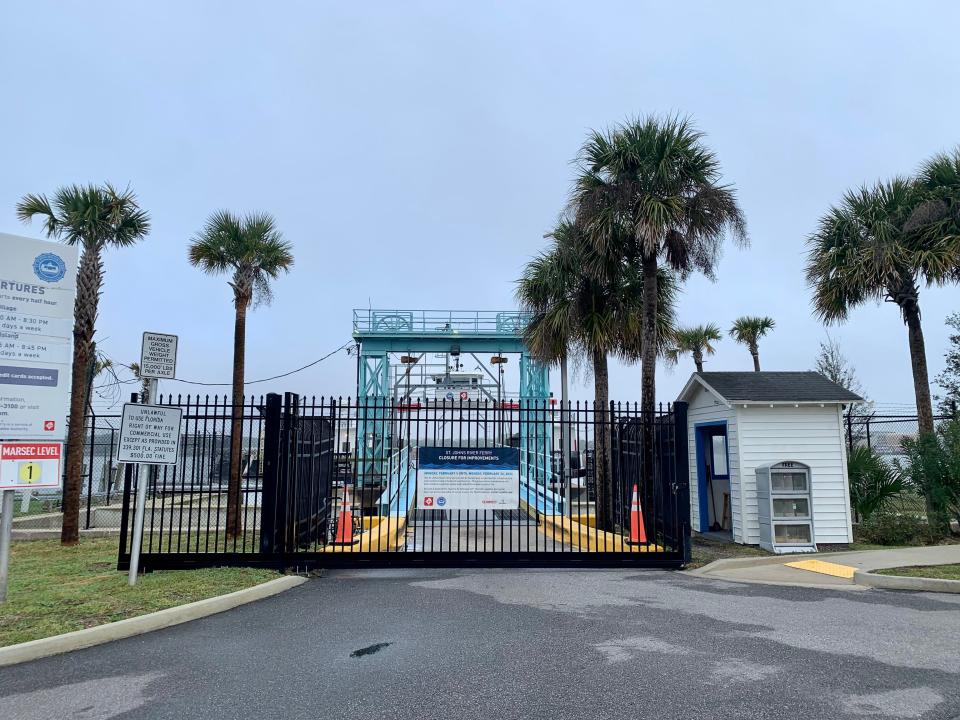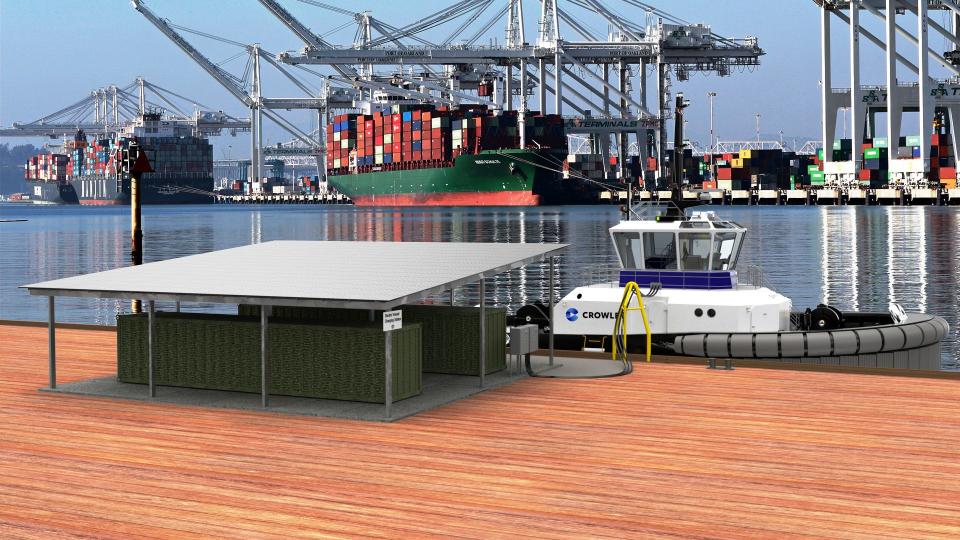The suspension of St. Johns River Ferry service is reminder of need for two-boat service

St. Johns River Ferry riders are once again finding the "out of service" notice that arrives like clockwork this time of year, but the Jacksonville Transportation Authority is seeking a $30 million grant for purchasing a second ferry that would eliminate the annual break in ferry trips.
That second ferry might be electric-powered, a big change from the diesel-fueled boat that takes people and vehicles between Mayport and Fort George Island on the Florida A1A route through Jacksonville.
Here's how and when a second ferry would affect the St. Johns River Ferry service.
How long will the current service pause last?
The temporary halt to service started Monday and will go through Feb. 26 for upgrades to the ferry landing spots and engine maintenance. That three-week break is not as long as the 14-week shutdown about the same time last year.
The St. Johns River Ferry service has just one boat so when the Jean Ribault is out of service for required maintenance, there isn't a second boat to continue the daily trips.
How would the expense of adding a second ferry be financed?
The Jacksonville Transportation Authority, which operates the ferry, is applying for a $30 million federal transportation grant.
The U.S. Department of Transportation has $1.5 billion it will be awarding to projects in this year's Rebuilding American Infrastructure with Sustainability and Equity program. JTA also applied last year through the RAISE program and didn't make the cut in the highly competitive battle, but the application for a ferry boat was highly rated so the agency is taking another shot.
"We are seeing ridership grow every year exponentially on the St. Johns River Ferry, and a second boat makes perfect sense at this juncture," JTA CEO Nat Ford said.

Didn't the gas tax increase include a new ferry?
Yes. The $930 million list of projects to be paid for by doubling the local gas tax to 12 cents per gallon included $16.2 million for a new ferry and docking when the city approved the increase in 2021. Ford said if JTA can win the federal grant, the gas tax money, which will be collected over a 30-year period, can shift from the ferry to other transportation projects.
What kind of fuel would a second boat use?
Ford said JTA is looking at potentially using a zero-emission boat that could run on electricity or hydrogen fuel cells. He said a ferry boat gets used for decades so the decision on fuel type will have a lasting impact.
"We have to find ways to future-proof all these projects," he said. "Same thing with our bus fleet."
Is electric power feasible technology?
The electrification of the marine industry has been making headway for ferry boats and other vessels that make shorter trips.
Crowley, which is based in Jacksonville, took delivery in January of eWolf, which the company says is the first all-electric, ship assist harbor tugboat in the country. The eWolf tugboat will operate out of San Diego and is part of Crowley's long-term strategy to reduce emissions.
Greer Gillis, senior vice president and chief infrastructure and development officer for JTA, said ferry operators around the "are looking at the next innovation" such as low-emission and zero-emission boats and vessels that can travel faster.

When could a second ferry be in use if JTA wins grant?
JTA says if it wins a RAISE grant, it would start design and aim toward having the second ferry in operation by 2028.
Where will JTA post updates about the ferry resuming service?
Service updates will be posted at ferry.jtafla.com.
This article originally appeared on Florida Times-Union: JTA will seek $30 million grant for second ferry boat in Jacksonville

